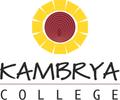Reconciliation Week

School Captains’ Reconciliation Week Speech
Good morning everyone,
Today, we want to speak to you to recognise an important occasion: Sorry Day and Reconciliation Week.
Sorry Day, which was on Friday 26th May, is a day that allows us to reflect upon and acknowledge the mistreatment of Indigenous peoples in Australia. It is a day where we remember the Stolen Generations, the Indigenous children who were forcibly removed from their families and communities. This dark chapter in our history represents a painful injustice, and Sorry Day serves as an opportunity for us to express our sincere remorse and seek reconciliation.
This week is Reconciliation Week and extends the message of unity, understanding, and respect. It is a time to build bridges between Indigenous and non-Indigenous Australians, fostering mutual respect and working towards a future based on equality and recognition of our shared history. Reconciliation Week encourages us to embrace our differences, learn from one another, and create an inclusive society that values the contributions and perspectives of all its members.
As young people, we are the future leaders of our nation. We have the power and responsibility to shape a more harmonious and inclusive society, one that respects and upholds the rights of all individuals, regardless of their cultural background. By understanding and appreciating the struggles faced by Indigenous peoples, we can actively participate in the process of healing and reconciliation.
To truly embrace the spirit of reconciliation, we must strive for empathy and understanding. Educate yourselves about the rich and diverse cultures of Australia's First Nations peoples. Seek out opportunities to engage with Indigenous communities, attend cultural events, and listen to the stories of Indigenous elders and leaders. By actively learning and unlearning, we can challenge stereotypes, break down barriers, and foster stronger connections.
Reconciliation is not a one-time event or a quick fix; it is an ongoing journey. It requires us to examine our own biases and prejudices, to confront uncomfortable truths, and to advocate for change. We must actively work towards justice and equality, ensuring that the voices of Indigenous peoples are heard and respected in all aspects of society.
Today, we encourage each and every one of you to embrace the spirit of Sorry Day and Reconciliation Week. Let us stand together as a school community, united in our commitment to reconciliation. Engage in respectful conversations, promote cultural diversity, and challenge discriminatory attitudes or actions. Together, we can build a future where every individual feels valued, where reconciliation is a reality, and where the wounds of the past are healed.
Thank you for your attention, and let us embark on this journey of reconciliation together.
by Baran Khojasteh and Harlean Kaur
